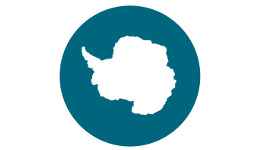Dr. Nadja Albertsen is the ESA-sponsored medical doctor spending 12 months at Concordia research station in Antarctica. She facilitates a number of experiments on the effects of isolation, light deprivation, and extreme temperatures on the human body and mind. This blog entry is translated from her original in Danish.
Red cabbage, glistening fresh – so fresh that I can see the crispness before I feel the thick, tough fibers in my mouth. I feel both a sense of joy and deep wonder. Where on earth has this cabbage been stored?
Apparently you can dream of cabbage. But probably only if you really love it – or been in Antarctica for almost a year, the last 6 months of which without fresh food.
Besides waking up with a smile from dreaming of cabbage (and a little disappointment that it was only a dream), it won’t be very long now before fresh supplies arrive, probably less than a day which seems almost unreal after so long. Of course it is with the usual “maybe”. We mustn’t forget the eternal reservation of the polar regions, where the weather largely determines planning. Only a few days ago it was announced that the first aircraft would arrive on November 6, and only with fresh food and scientific equipment. It struck me this afternoon when I poured milk powder into my coffee that tomorrow I might be able to replace it with real milk.
There is room for airplanes in our not very busy airport. A year and two days ago, I left Denmark and almost 9 months ago the last flight left the base. This also means that there has really been no runway for almost 9 months, so the past week has been a hectic scramble to get ready for the planes, outdoors and indoors.
October has been colder than usual – the average temperature ended at -72.4°C, which is only marginally higher than the cold record from 2014, when the average ended at -72.8°C.
Since most of the machines used to remove snow, smooth the runway, move containers with fuel, and so on, work reliably around -45/-40 °C, outdoor work has had to wait.
We dug up tents and containers outside and polish indoors in great style! Ceilings and walls have been washed, benches cleaned, extra bedrooms prepared and mattresses changed.
The fact that the first summer staff is scheduled for arrival on November 8 also means that we will soon have our last time together as a small group of 13. Over the past few weeks we celebrated the last sunset (a very cold affair on the base roof – which blew 6.4 m/s, giving a not very nice wind chill, despite the summer) and the upcoming birthdays in November and December.
Since these days I am also doing the last tests and have just started packing equipment for return to Europe, I looked through some of our data and made a small quiz. It was both really fun to make and also fun for the participants; it gave a little insight into how much has happened over the past year and how much they have contributed to the various projects. In addition to facts such as longest and shortest flight (in time) in the Soyuz simulator, the test included:
- Total weight loss for the group during the year: 45.1 kg
- Quantity of blood donated to science per person: men 666 ml, women 270 ml (not all projects include women) – 7.47 litres in total
- Number of times we were served pizza during the winter: 31
- Number of completed questionnaires per person during the year: 149 for men, 134 for women
- Total amount of urine washed out in Antarctica during the year (based on daily urine measurements): 6616 litres
- Average number of bacon slices consumed per day per person: 3.2
To add to the mood, I filled stool sample tubes with chocolate-covered coffee beans and saliva glasses with an unappealing but tasty drink made of rum, grape juice and mint. The winners (which included the team’s other doctor who, like most anaesthesiologists, has a certain winning mentality, and our mechanic, who despite an angelic appearance is an incarnate cheater), won a fine cardboard rocket, a pack of paper airplanes and homemade ribbons made of barrier tape that’ll guarantee a win in any beauty pageants. The losers were given a box of leftover letters containing probiotics and post-its put into the pan with the text “Antarctica’s biggest loser”.
With now just over 16 hours for the first flight, the mood is almost euphoric, but also a little anxious as the coming weeks will include many people, many opinions and some “VIPs” that need to be taken into account. But there will also be many laughs, new inputs, new acquaintances and meeting people from last year.
It will undoubtedly be a few good and busy weeks!






Discussion: one comment
Let me know as soon as the first plane lands with new winter team. My son is in this fligth…
Thanks a lot and have a good day